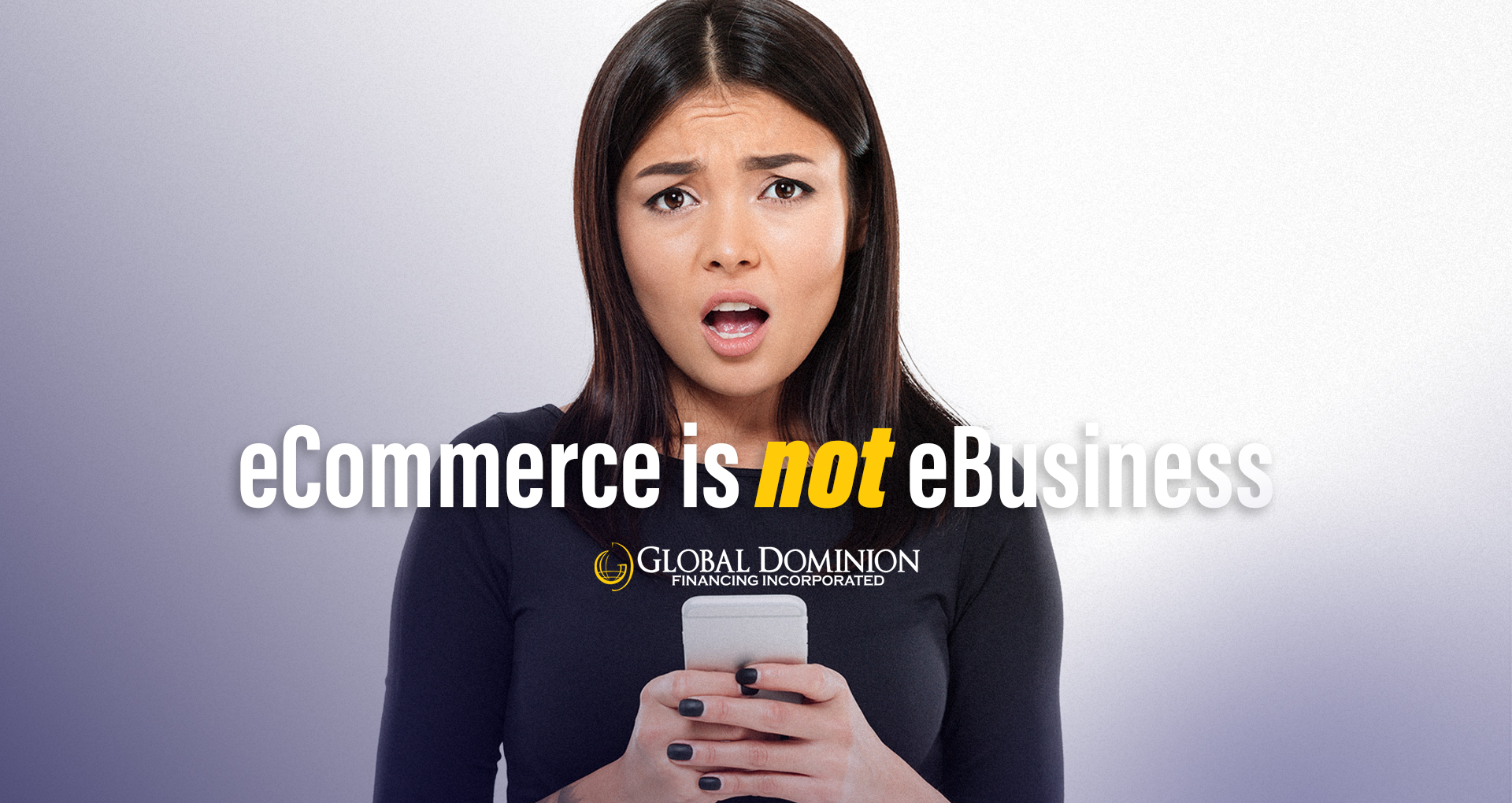E-business vs E-commerce: Know the Difference

People often replace the word e-business with e-commerce or vice versa. However, they are not synonymous. Although both are related to the internet, an online business is not the same as an online store. Only a few know the difference between these two words naming the business models that came out of necessity in this modern era.
Now it’s time to know better and not use them interchangeably.
What is eCommerce?
E-commerce or electronic commerce is the transformation of merchandising in the age of digital technology. The trading processes such as ordering, selling, purchase, inquiries, and payment of goods
and services are carried out through various online platforms. The marketing activities, customer service, and advertisement also take place online – all in one from an application or website.
Major brands have set up their websites to feature their services or stores where customers can buy directly. Other businesses capitalize the social media to bring their products to the public and boost
their brand influence. Since the transaction utilizes the internet, it means that physical interaction is not needed anymore and so, it is beneficial for both customers and merchants.
For Customers
- Customers don’t have to brave the traffic, wait patiently in long lines, and carry a bulk of goods on your way home. Just download the app or visit the official store website and go shopping.
- Customers have all the time to choose what you like because the more store you follow, the more products and services to see. Besides, there’s no shame anymore in canvassing or looking through the products without the intention to buy.
- It saves time, money, and effort with its easy access, and therefore it spells convenience.
For Merchants
- Big retail companies see eCommerce as another means to generate income, but those small business owners see this as an opportunity to get more sales without having to build an immediate physical store or branch.
- Because people spend a huge amount of time online, eCommerce can give merchants platforms where they have a wider reach to possible customers for free. Spending on digital marketing also strengthens more your income generation capabilities.
- Customer data insights, competitor’s product launches, and market trends can be obtained to improve your brand and sales performance.
Types of eCommerce
- Business to Customer (B2C) – the selling of products or services by businesses to customers.
- Business to Business (B2B) – defined as the trading of goods and services between businesses.
- Customer to Business (C2B) – refers to the trading of services or goods by a customer to the business.
- Customer to Customer (C2C) – illustrated as a trading transaction between two customers.
What is eBusiness?
E-business or electronic business is the trading of goods and services through the utilization of the internet. It is the umbrella term of all businesses done online, and eCommerce is only a fraction of it. This means that e-business is not only confined to retail or commercial goods or services but also with transactions not limited by money.
E-business primarily deals with business transactions and it provides complex services that improve company productivity and sales performance. This includes customer relationship management, digital marketing, administration, communication, and IT support.
Types of eBusiness
- Pure play – a business model referring to those that exist online only and has no physical facilities or stores.
- Brick and click – a business model that describes an entity that exists both online and offline (with physical facility or store).
Differences between eCommerce and eBusiness
- E-business is the general term of all businesses conducted through the internet while e-commerce is a subset of e-business.
- E-commerce only pertains to buying products and services via the internet while e-business refers to the online presence of a company and all its activities are done digitally.
- E-commerce deals with client-facing activities. E-business includes both external and internal processes.
- E-commerce refers to transactions availed through money, but e-business covers both the money-related activities and business processes.
- E-commerce only requires a website for business representation. However, e-business has more requirements such as websites, enterprise resource plan, customer relationship management, or IT tools and platforms. These are needed for the e-business to operate.
- While e-commerce utilizes the internet to establish brands and sell to the public, e-business uses a variety of platforms such as the internet, extranet, intranet for clients.






